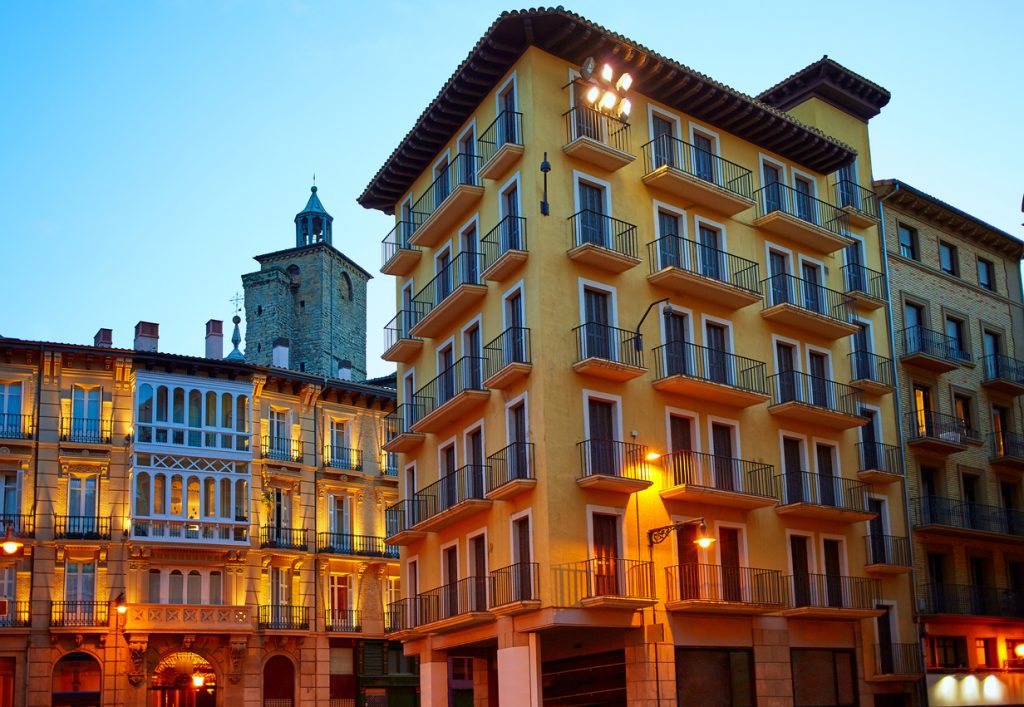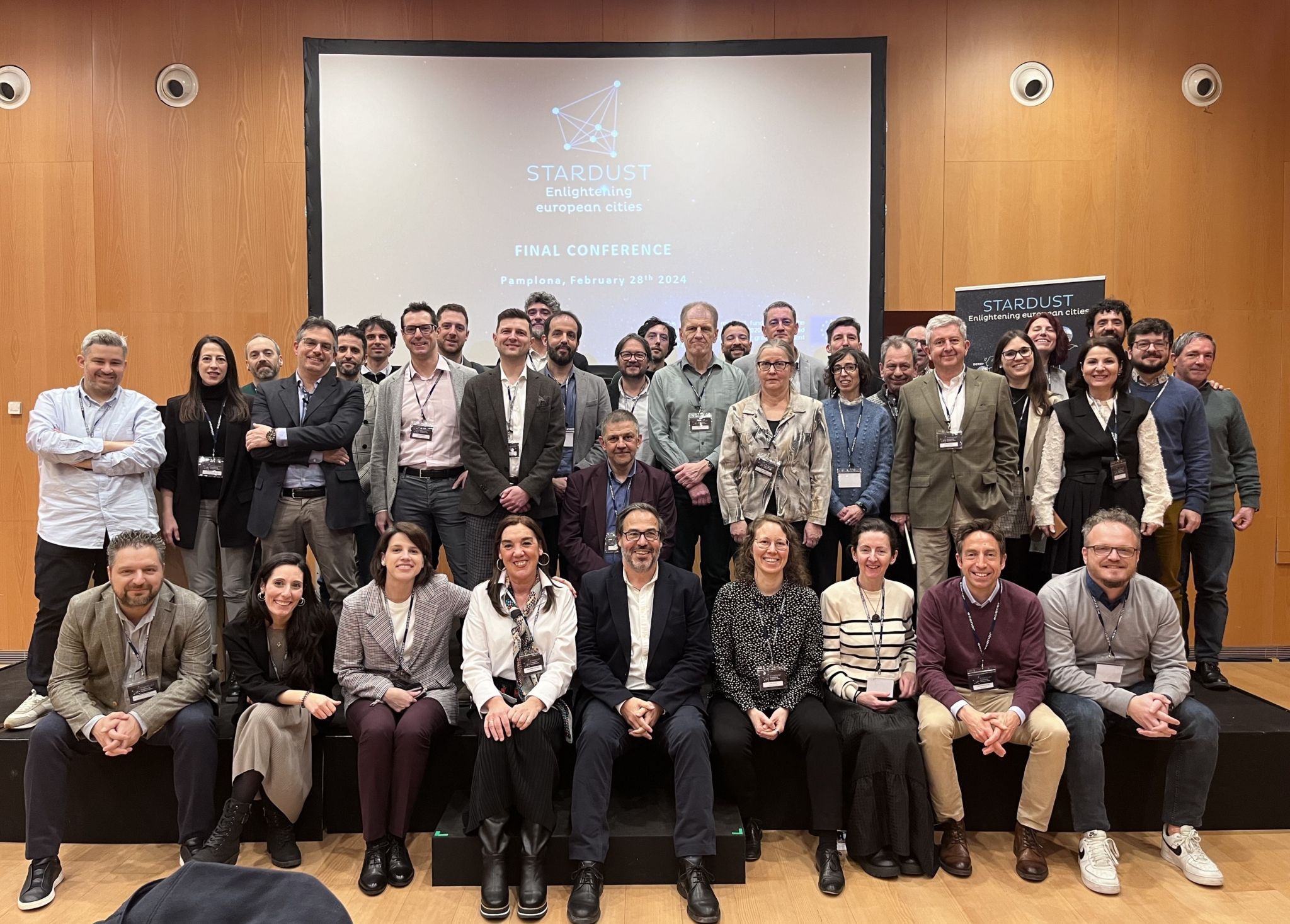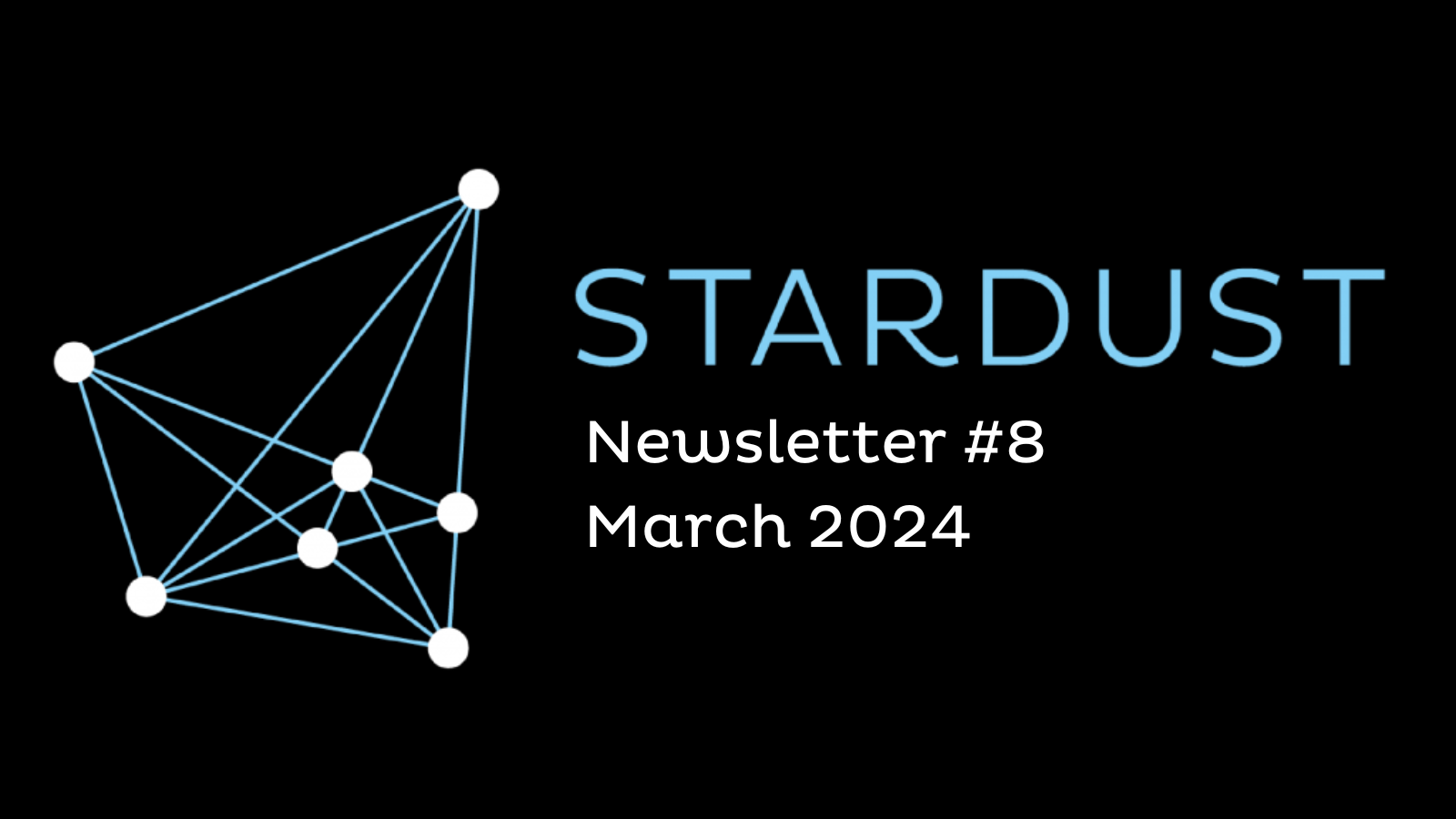The City of Pamplona is hosting delegates from across Europe to celebrate the end of the Smart Cities project STARDUST. Since 2017, six cities all in different countries and contexts have worked together to help each other “get smart” and “go green” and now they have convened in one of the cities – Pamplona – to reflect on their achievements and the lessons learnt.
“After all this time, and after many challenges that we have overcome, the consortium has a lot of knowledge to share,” reflects project coordinator Florencio Manteca from CENER. “It has been a really complex, but successful project, and the final conference is an opportunity to share all this knowledge and experience gained during the project with the other European cities and the scientific community, so that it can be inspiring for them.”
Since 2017, the project has come a long way with the consortium having had to navigate a global pandemic and the consequences of Russia’s invasion of Ukraine on energy prices and shortages of key technological components.
Despite these challenges and those inherent to a project of this scale, the STARDUST team has been an overall success. In Tampere and Pamplona, many nearly zero and low-carbon buildings have been built and renovated. The e-mobility pilots in the Lighthouse cities and Cluj-Napoca have been particularly successful, with innovative solutions for integrating energy into public mobility, and integration of buildings, RES and mobility. Successful implementations of IoT-based city platforms have been successfully carried out, as well as various ICT solutions for energy management, monitoring of energy and environmental indicators and citizen participation Apps (La Mia Trento, Tampere.Finland and Pamplona CityApp).
Furthermore, it has been possible to design, build and validate very innovative district heating and cooling solutions (using RES and local energy in Pamplona, and applying flexibility concepts in heating and waste heat recovery and district cooling in Tampere).
The follower cities (Derry, Kozani and Cluj) have developed significant replication plans for the solutions implemented in the lighthouse, enabling to use some of them in their climate neutrality strategy.
The project has also provided cities with useful knowledge to develop their decarbonisation plans. Three of the six Stardust cities (Tampere, Kozani and Cluj) have been selected in the European Commission’s “Mission 100 Climate-Neutral and Smart Cities by 2030”.
These successes, challenges and the lessons learned from these have featured on the agenda of this first day of conference. A day that concludes with a technical visit to Pamplona’s demonstration sites where various measures have been developed and implemented, including urban regeneration, renewable energy district heating, Passivhaus-certified dwellings, PV roof with an e-bus charger integrated into a smart grid, and solar parking for an energy community supply.
Talking about what it means for Pamplona to play host to this international event, Florencio Manteca states: “Pamplona is a small-to-medium-sized city, but with a long track record in R&D projects and a strong established innovation ecosystem, made up of industry, academia, research centres and public administration, so this Stardust event allows the city to strengthen links with other European cities and companies, multiplying the opportunities for collaboration in different areas.”
Photo downloaded from Unsplash


